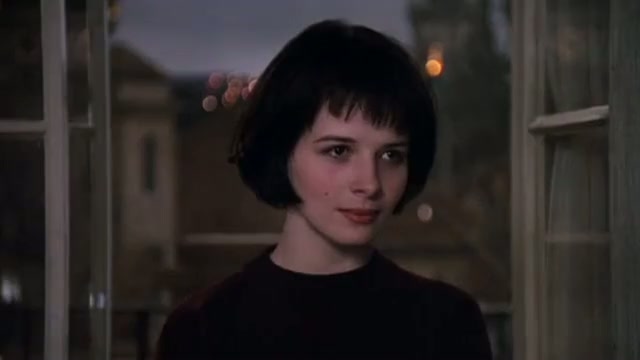Director:
Philip KaufmanCámara:
Sven NykvistMúsica:
Mark AdlerReparto:
Daniel Day-Lewis, Juliette Binoche, Lena Olin, Derek de Lint, Erland Josephson, Pavel Landovský, Donald Moffat, Daniel Olbrychski, Stellan Skarsgård (más)Streaming (1)
Sinopsis(1)
Praga, 1965. Tomas, un mujeriego y consumado cirujano, está empeñado en la búsqueda de la felicidad. Está decidido a vivir con una levedad de ser inalterada por temas como libertad, compromiso y consumismo... (United International Pictures)
Reseñas (4)
I must admit that I only gave this that one star to reward that the authors attempted to create the perfect Prague atmosphere, but those cameras that filmed it haven’t even brushed up against Prague. Those Czech signs and the spirit of Czech streets is just not enough to turn the set into Czech Republic. That’s simply not possible. Everything else was wrong and the worst thing about it was the fact that it was awful, truly awful three hours of boredom.
()
Basically a perfect example of the current development of Kundera's myth. From a complex and dense text to a sparse and twisted story that is styled to be "user friendly" for Western audiences. The absolute artificiality of the environment wouldn’t be as important if the atmosphere just before / after August didn’t play such an important role in the original. Kaufman evokes the atmosphere like someone who is uninitiated in the classics – he inserts the emblems of Czechness everywhere – the flag, the anthem, Prague Castle, but a simple a glance reveals that in reality everything is artificial, misunderstood, twisted. The highlight is the end of the film, when the Czech countryside is depicted with unwanted irony in the same way as in Sorel paintings from the 1950s. Another problem (at least for me) is the acting, especially the lousy performance by Daniel Day-Lewis, whose character Tomáš completely lacks any of the internal tension from the literary texts and suffices with one seductive look, whilst fatigue, skepticism and internal exile disappear somewhere. Thirdly, the screenplay, unlike the balanced and masterfully styled original masterpiece, gets stuck on considerable inconsistencies in everyday speech and deeper thoughts. As a result, it comes off as extraordinarily pathetic and inorganic. Several well-filmed moments deserve praise (I would especially highlight the photography of Sabina's nudes and then the impressively edited conclusion with its great sound), which, however, did not convince me that Kaufman made a cohesive film worthy of Kundera's novel. If it weren't for the original novel, I would probably be more lenient, but this film simply wasn’t very good.
()
Unstoppable colossus, which hides a simple and at the same time too protracted story under its richness of thought, which is furthermore not adapted in the true sense of the word, rather experimental. I would have understood the central idea halfway through, and when, after an hour and a half, the script tries to extract the last remnants of emotions from me through moving music, long glances, and bold gestures, I was just sitting there, feeling exhausted to the core. I haven't met Kundera yet, and the film doesn't change anything about that.
()
Una vez más, me vi obligado a romper mi principio y evaluar esta basura! Por muchas razones, mencionaré solo algunas, ya que podría escribir durante horas. Soy un entusiasta seguidor de Milan Kundera y durante mucho tiempo no entendí por qué prohíbe las adaptaciones de sus obras y está tan en contra de esta película, que probablemente sea la razón de su prohibición. Después de ver esta película, entiendo al escritor y estoy completamente de acuerdo con él, aunque sea una gran lástima para todos sus fanáticos. En primer lugar, durante toda la película, no tuve ni un solo momento la sensación de que se tratara de una película sobre la República Checa, los checos y la República Checa. En segundo lugar, el personaje de Tereza fue retratado de manera completamente diferente en el libro. Era una mujer decente y sensible que solo sufría debido a su origen humilde, lo cual se veía agravado por la actitud brusca de su propia madre. En la película, sentí que Binoche interpretó a alguna especie de idiota, siempre llorando y lista para ser tratada en una institución psiquiátrica. En tercer lugar, me gustaría saber si algún espectador que no haya leído el libro entendió de quién recibió Sabina la carta que le anunciaba la muerte de Tomáš y Sabina al final. En cuarto lugar, Franz fue un personaje completamente innecesario en la película. Si no estuviera, nadie lo echaría de menos. En quinto lugar, Sabina salta de Ginebra directamente a Estados Unidos, por lo que París parecía innecesario e insignificante para Kaufman. En sexto lugar, Pavel Landovský era extremadamente incómodo en casi todas las películas en las que aparecía. Su aspecto de borracho no encajaba en absoluto aquí. En séptimo lugar, la escena en la que Tomáš se niega a firmar la apelación de su artículo estaba completamente forzada. En octavo lugar, se supone que Daniel Day-Lewis siempre elige cuidadosamente sus papeles, no entiendo por qué esta vez decidió tan mal. Tengo una opinión que comparto con muchas personas: las famosas obras literarias de cada país deberían ser filmadas por directores de esos países, y especialmente los estadounidenses no deberían meterse en todo. Siempre pienso en cómo habría resultado una película dirigida por un director checo con actores checos, o en el caso de Franz, interpretado por un extranjero. Por ejemplo, Vladimír Michálek, Jiří Menzel o Viktor Polesný podrían dirigirlo, Ivan Trojan, Tomáš Matonoha o Saša Rašilov podrían interpretar a Tomáš, Klára Issová, Tereza Brodská o Barbora Seidlová podrían interpretar a Tereza, y Linda Rybová o Tatiana Vilhelmová podrían interpretar a Sabina. Desafortunadamente, el señor Kaufman tuvo que demostrar algo.
()

